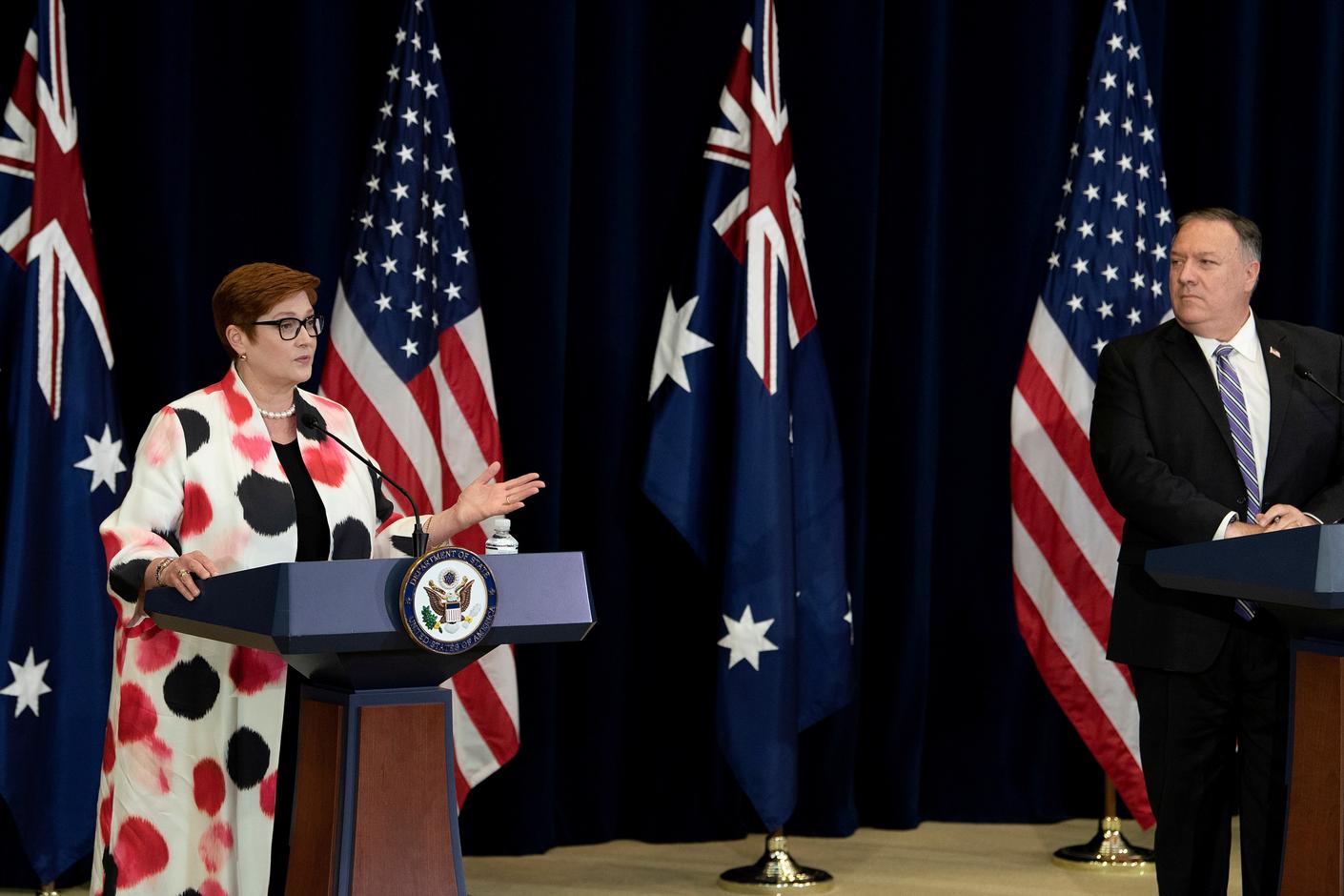Editor's note: Australia is leading the regional pushback against China's territorial and diplomatic expansion and interference in the Asia-Pacific, said Sascha-Dominik Bachmann, professor in law at Canberra Law School - University of Canberra.
Australia’s position on the East Vietnam Sea was the center of global attention amid the 30th Australia-United States Ministerial Consultations (AUSMIN) 2020.
As per the joint statement on July 28, Canberra reaffirmed U.S. alliance but opted to avoid full commitment over freedom of navigation operations (FONOPS) in the East Vietnam Sea.
To be more exact, Australian governments have so far sailed through the international waters in accordance with international law, but never within 12 nautical miles of land features claimed by China.
Canberra, in other words, chose a cautious approach as Foreign Minister Marise Payne stated, "Let me reiterate that we make our own decisions.”
In an exclusive op-ed for Tuoi Tre News, Prof. Bachmann shared his thoughts on what is behind Australia’s stance on the East Vietnam Sea, the relationship with the United States, and the United States – China relations.
It is not surprising that both the U.S. and Australia issued a very similar condemnation of Beijing's continuing illegal activities in the disputed maritime region on the evening of the AUSMIN talks.
This is a logical consequence of China's ever increasing bellicose posturing in the Asia-Pacific region.
Labelled by some commentators as 'weaponization of COVID-19,' China seems to have taken advantage of the outbreak and its impact on the states to accelerate its ever more bellicose territorial ambitions from the [East Vietnam Sea] and East China Seas to the Chinese-Indian border dispute, Hong Kong, and Taiwan issues. Beijing's increased aggressive behavior had to be countered at one point and this is what is happening now: a naval exercise by Japanese, the United States and Australian naval vessels in the Philippine Sea, ongoing United States FONOPS in the [East Vietnam Sea], in addition to individual states like Indonesia conducting military drills in the East Vietnam Sea region to signal to Beijing that its illegal claims over the waterway are being rejected and will not stand.
In an Australian context, we can see that the current government of Scott Morrisson is leading the pushback against China’s increasing regional influence and any unrestricted warfare of the People's Liberation Army targeting the region in general, and Australia and New Zealand in particular.
China's influence eroding the sovereignty of these two countries has been known for years and the Morrison government has been at the forefront of countering Beijing's such grey zone or hybrid activities. Australia has been on the receiving end of such operations in a variety of grey zone domains, from cyberattacks, influence operations, trade boycotts, and diplomatic threats to espionage. It’s a whole spectrum of DIMEFIL operations targeting our way of life and sovereignty by exploiting expertly our vulnerabilities of an open and democratic society.
And the Morrisson government has been pushing back against such hostile actions by a supposedly partner of Australia since 2018: from banning Huawei from 5G, calling for an independent inquiry into whether COVID-19 originates in China, demanding an international investigation into Beijing's systematic abuse of Muslim Uighurs to a call for the adoption of new tougher laws on foreign direct investment detrimental to Canberra’s national interests.
Australia’s growing concern in regard to China and its awareness of hostile activities by Beijing has seen the adoption of these governmental actions and culminated in the announcement of the adoption of a record high defense budget and increased spending on cyber as well as investment into grey zone capabilities. Such defence spending is augmented by an increased diplomatic, international law and relations-centered, strategic alliances approach.
It is heartening to see that Australia as a leading middle power is once more playing an important role in upholding the global rules-based order in the region and the examples discussed highlight how Australia’s awareness of Beijing as a source and originator of current threats to regional (and global) rule of law, security, and stability.
China’s influence has to be countered by adopting a comprehensive multitasked holder and domain counter approach. We are seeing that the Morrison administration seems to be determined to continue this as long as it is needed and Beijing returns to be a trusted partner in peaceful trade and development in the region.
And to meet this goal, Australia and its allies need to increase our resilience in the face of economic coercion, aggression, and political interference by China, with whom our future relations must come from a position of unity and strength.


















































